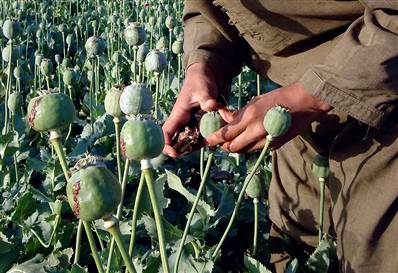updated 4:23 p.m. ET Aug. 2, 2009
SHAHRAN, Afghanistan - For as long as anyone can remember, there was no need for paper money in this remote(偏远的) corner of the Hindu Kush. The common currency(货币) was what grew in everyone's backyard — opium(鸦片).
When children felt like buying candy(糖果), they ran into their father's fields and returned with a few grams(克) of opium folded(包起来) inside a leaf. Their mothers collected it in plastic bags(塑料袋), trading 18 grams for a meter of fabric(织物) or two liters(升) of cooking oil. Even a visit to the barbershop(理发店) could be settled in opium.
But the economy of this village sputtered to a halt(停滞下来) last year when the government began aggressively enforcing(执行) a ban on opium production. Villagers were not allowed to plant their only cash crop. Now shops are empty and farmers are in debt, as entire communities spiral(急剧上升或下降,这里是下降) into poverty.
Without opium, Afghan village economy spirals
最新评论共有 6 位网友发表了评论
查看所有评论
发表评论
热点关注
- [travel] New friends bec
- 冰果英语上线
- [love] Proof´s in t
- [science] Happy Birthday
- Best bike-sharing cities
- [politics] Blacks, white
- In first visit to China,
- [education] Study Abroad
- 'Pearl Buck In China': A
- [education] College stud
- [culture] Explain This:
- [economics] China´s
- Washington state conside
- iOS 6 coming Sept 19, he
- 5 Tips: How to Keep Your
- [economics] 7 Financial
- "Avatar" sinks "Titanic"
- Beckham's World Cup drea
- Facebook use can lower g
- World's tallest building


